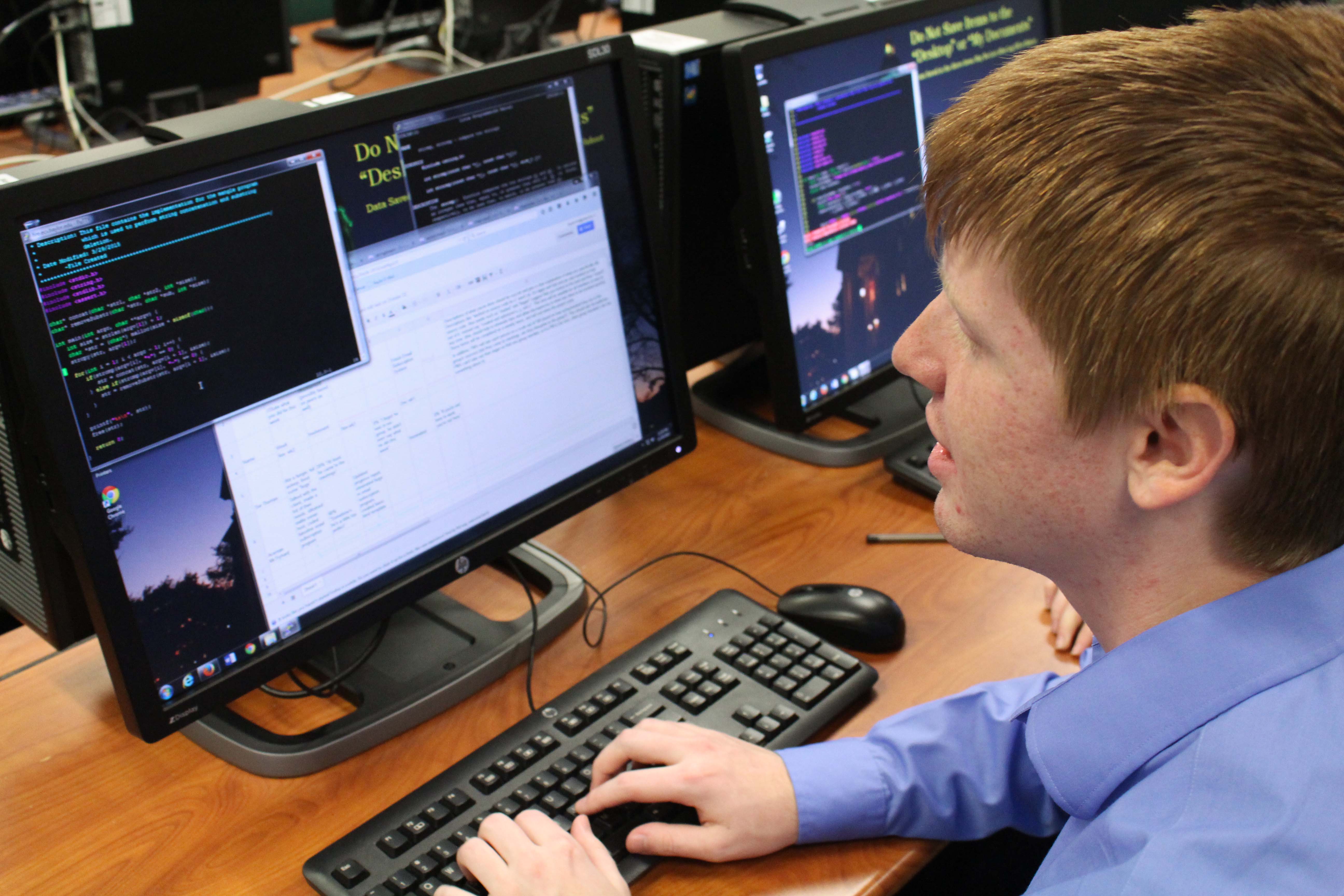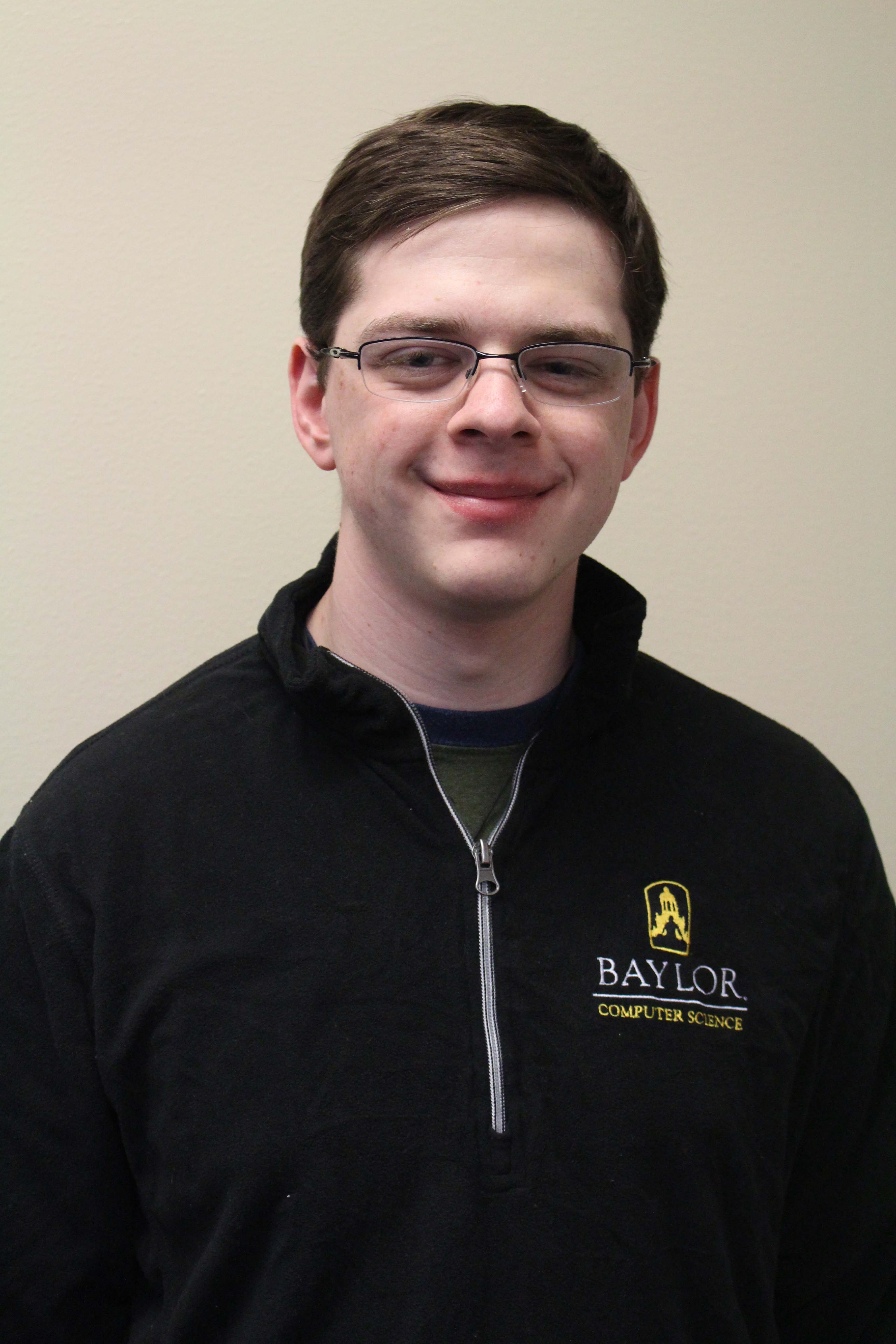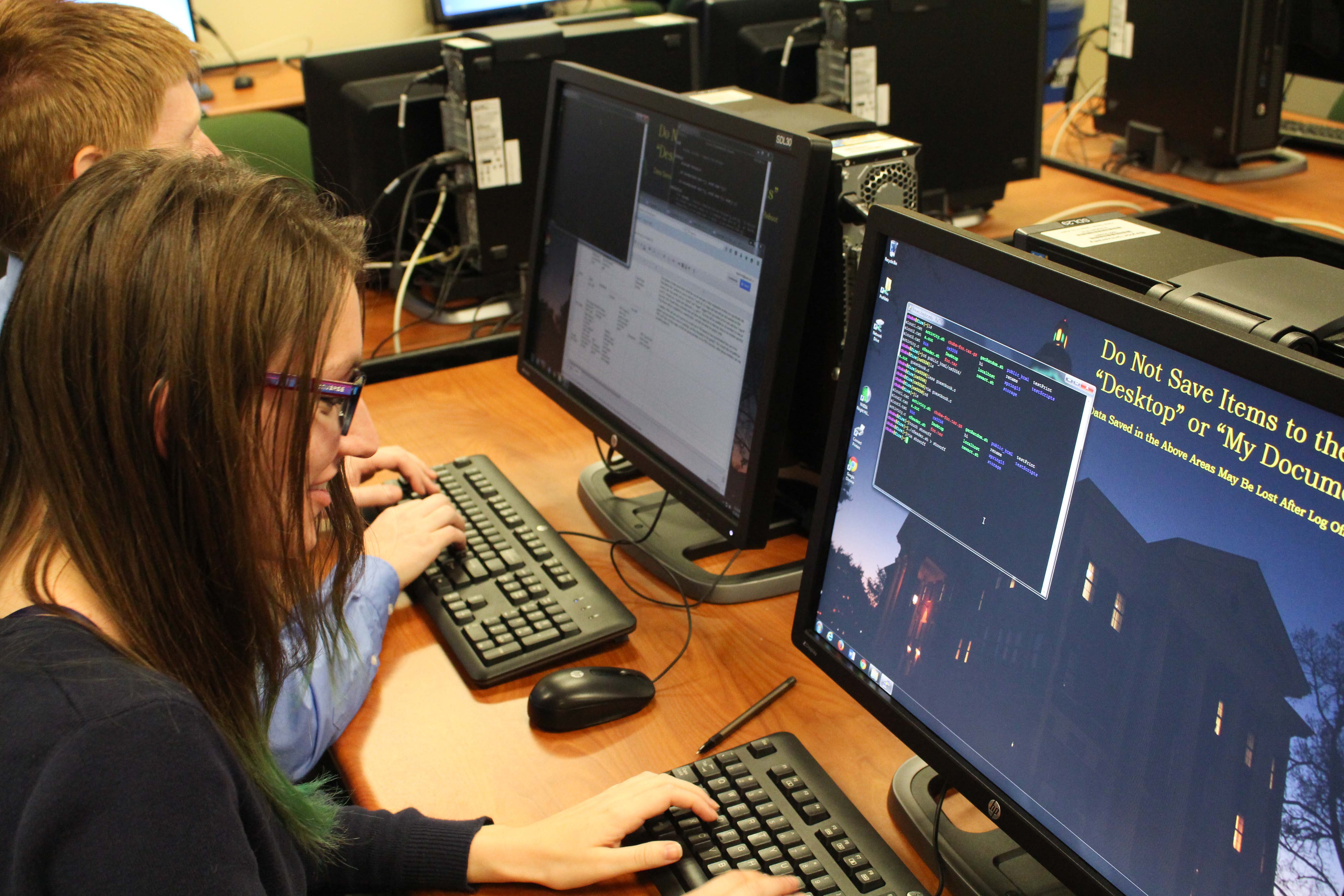Giving Back: Baylor Students Use Technology Skills to Bolster Central Texas Ministries and Nonprofits



Media contact: Eric M. Eckert, office: (254) 710-1964, mobile: (254) 652-0398
Follow Eric on Twitter: @EricBaylorU
Follow Baylor Media Communications on Twitter: @BaylorUMedia
WACO, Texas (Nov. 23, 2015) – When Baylor University senior James Payne saw the children involved in Antioch Community Church's STARS Mentoring Project reading books and engaging with their mentors, he knew his behind-the-scenes work was making a difference.
Payne, a computer science major in Baylor's School of Engineering and Computer Science, volunteers with Computing for Compassion (C4C), a student-led campus outreach tasked with tackling the technology challenges for Central Texas ministries and nonprofits.
"My work with Computing for Compassion has helped me realize I want to be on the people side of technology," Payne said.
By meeting organizations' technology needs, C4C gives ministries space to focus more on ministry and less on logistics, said Jeff Donahoo, Ph.D., professor of computer science. He and Bill Booth, Ph.D., senior lecturer in computer science, launched the group in 2013.
"Ministries in Waco and beyond should be able to focus on their mission, not bogged down with technical challenges," Donahoo said. "C4C allows students with skills in computer science and information technology to use their gifts to magnify the capabilities of compassion-based ministries. Our goal is simply to help enhance the great work of these programs."
Current C4C projects include:
• Streamlining volunteer resources for STARS Mentorship Program
• Improving website and donor communication infrastructure for Global Banjara Baptist Ministries International (GBBMI)
• Creating a mobile intervention app for children with attention deficit difficulties
• Developing a church notes website for St. Luke Catholic Church in Temple, Texas
• Developing a website for Baylor Agape Connection
C4C currently has more than 20 students working on projects. The group consists of mostly computer science majors, along with students in electrical and computer engineering, bioinformatics, mathematics and University Scholars. C4C is open to all students interested in using their technological skills to better the community.
The program is a win-win for both the community and the students, Donahoo said. As students have the opportunity to speak into problem-solving techniques and infrastructure improvements, they gain valuable real-world experience that does significant good for the community.
Students work in teams, interact with clients and develop strategies to further the mission of organizations. Nonprofits, in turn, are implementing and learning to work with new technologies, allowing more time to be spent focusing on their organizations' ministry needs.
The contributions of computer science and information technology professionals aren't always in the spotlight, Donahoo explained. The professionals themselves don't always see the impact of their contributions, but C4C has already left a lasting mark on the Waco community.
Through their work with the STARS Mentoring Project, C4C students were able to augment the organization's volunteer base by making it easier to bring in more mentors and service more students in need by improving their information technology.
"Their creative solutions, hard work and collaboration have helped us significantly streamline our administrative tasks," said Michael Jeter, assistant director of STARS, adding that C4C's involvement has allowed STARS to grow its mentor base and influence more young lives.
"I believe we are all gifted uniquely for service, and Computing for Compassion provides a way for people who are good at computer programming to use their skills to serve God and others," said Matt Arnold, a junior computer science major and C4C vice president.
Arnold has spent many hours working on the STARS project.
"It was cool to hear reports from STARS about how our work was enabling them to work better and positively impact kids' lives," he said.
The work goes far beyond a degree requirement, Donahoo explained. His hope from the beginning was to see students' lives transformed through investing in others.
"We hope our students' dedication will be ongoing," the professor said. "We hope that as students leave the university, they will carry forward a desire to plug in and support compassion-based ministries in their communities."
For more information, contact Dr. Donahoo at Jeff_Donahoo@baylor.edu.
by Bethany Harper, student newswriter, (254) 710-6805
ABOUT BAYLOR UNIVERSITY
Baylor University is a private Christian University and a nationally ranked research institution, characterized as having "high research activity" by the Carnegie Foundation for the Advancement of Teaching. The University provides a vibrant campus community for approximately 16,000 students by blending interdisciplinary research with an international reputation for educational excellence and a faculty commitment to teaching and scholarship. Chartered in 1845 by the Republic of Texas through the efforts of Baptist pioneers, Baylor is the oldest continually operating University in Texas. Located in Waco, Baylor welcomes students from all 50 states and more than 80 countries to study a broad range of degrees among its 12 nationally recognized academic divisions. Baylor sponsors 19 varsity athletic teams and is a founding member of the Big 12 Conference.
ABOUT THE SCHOOL OF ENGINEERING AND COMPUTER SCIENCE
With more than 10 percent of Baylor University's freshman class pursuing major courses of study in the School of Engineering and Computer Science (ECS), the focus remains on preparing graduates for professional practice and responsible leadership with a Christian world view. ECS majors include bioinformatics, computer science, electrical and computer engineering, general engineering, and mechanical engineering. Among ECS graduate programs are Master of Science degrees in all disciplines, a Ph.D. in electrical and computer engineering, and several dual degree programs. The Teal Residential College for Engineering and Computer Science, in which students and faculty live, fosters the pursuit of wisdom, academic excellence, and meaningful relationships for the development of diverse, innovative leaders.